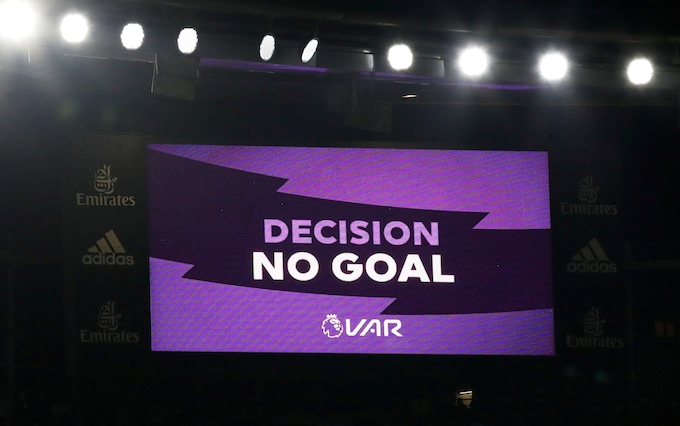- The system is designed to enhance the overall fairness and accuracy of the game.
The introduction of Video Assistant Referee (VAR) technology in football has been met with both anticipation and controversy.
While the system aims to reduce errors and enhance fairness, its implementation has sparked debates among fans, players, and officials.
VAR has undergone advancements in technology and implementation over the years. Its primary objective is to minimize clear errors in officiating by providing additional information to match officials.
The system is designed to enhance the overall fairness and accuracy of the game.
Despite the intentions behind VAR, it has faced criticism and caused frustrations among football enthusiasts.
Read More
Goal-line technology, for example, has led to the disallowing of valid goals, impacting the outcome of matches. Furthermore, instances where VAR decisions have favored certain clubs have raised concerns about fairness.
Several incidents have brought VAR's shortcomings to the forefront. Despite the ball being out of play, Arsenal's undefeated run ended when VAR controversially allowed a goal from Newcastle's Antony Gordon.
Wolverhampton Wanderers, currently in 14th place in the English Premier League, has experienced numerous frustrations with VAR, particularly regarding penalty decisions. These incidents have fueled discussions about the flaws in VAR implementation.
Former EPL referee Mike Dean has voiced his dissatisfaction with VAR, suggesting it has been biased toward larger clubs. He argues that officials reviewing incidents behind the screens often fail to reach the correct decisions, undermining the purpose of the technology.
“And it is completely useless - to the point of conspiracy theories about decisions mainly favouring the big clubs - when officials sitting behind the screens can't even reach the RIGHT decisions when they have a chance to look at incidents in detail, unlike referees who only get one look at everything in real-time,” the former referee argued.
Sky Sports football analyst Alex Richards echoes Dean's sentiments, emphasizing the need for accountability among those using VAR.
To address the challenges associated with VAR, several suggestions have been proposed.
Transparency is crucial, with a focus on understanding the reasoning behind decisions.
Limiting slow-motion replays and introducing a time limit for decision-making are potential solutions. Referees should have the final say, and VAR should only be used for precise and apparent errors.
Additionally, there should be constant updates and revisions of VAR protocols to address incompetency and prevent errors from tarnishing the integrity of the sport. Match officials in VAR should undergo rigorous training and testing to ensure competence and transparency.



-1770826318-md.jpg)



-1770803686-md.png)

-1770826318-sm.jpg)


